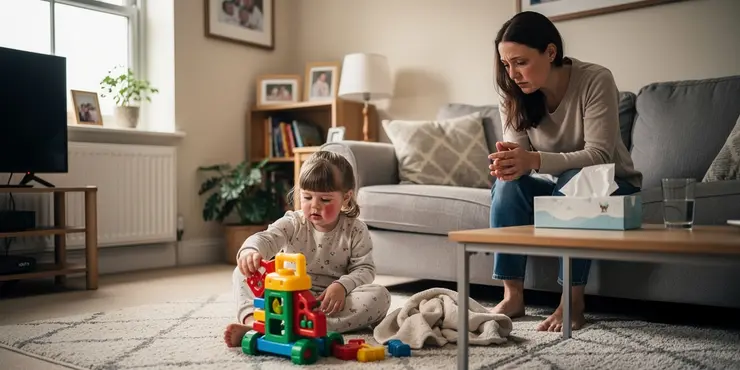
Find Help
More Items From Ergsy search
-
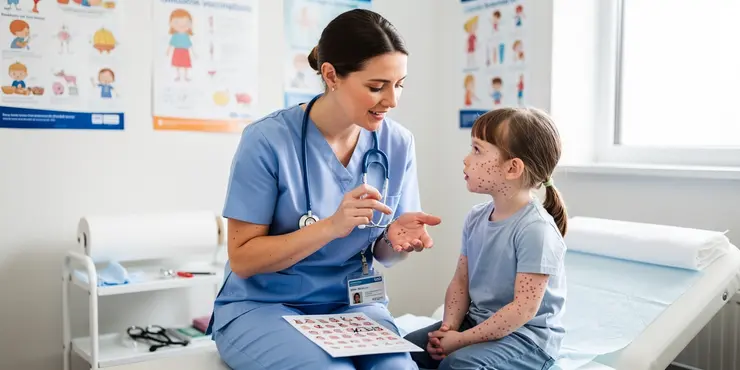
Is chickenpox contagious?
Relevance: 100%
-
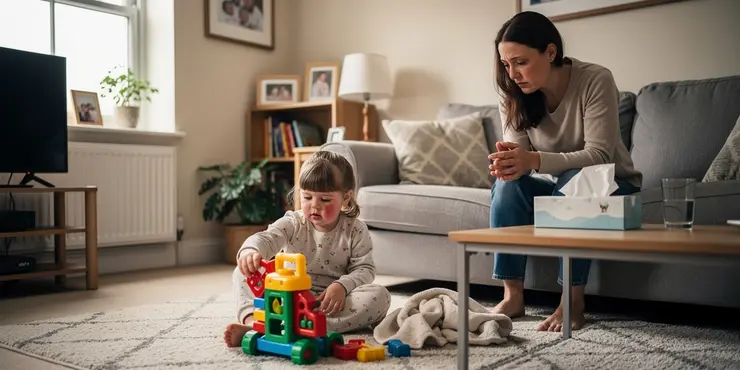
What is Chickenpox?
Relevance: 99%
-
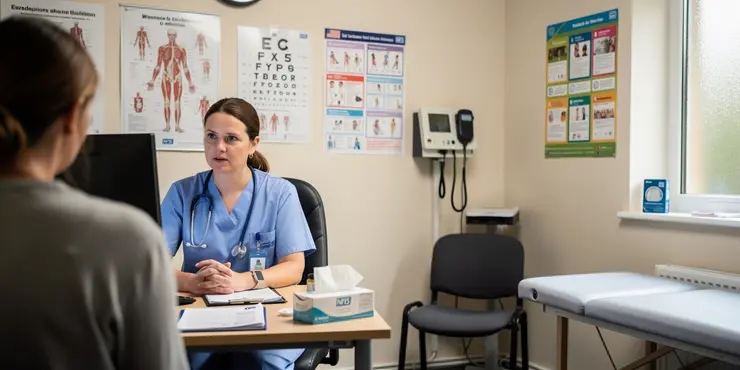
What are the complications of chickenpox?
Relevance: 95%
-
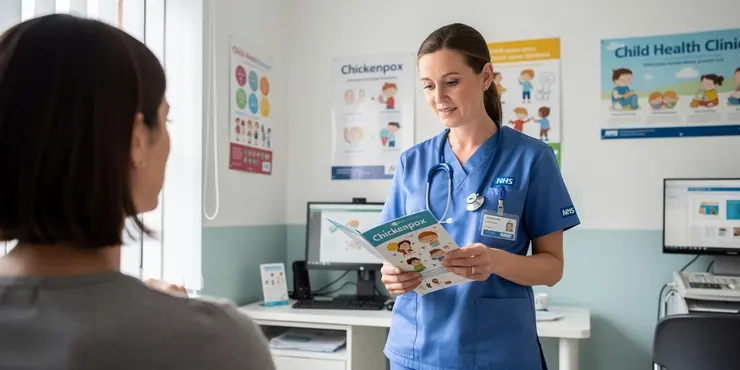
How is chickenpox spread?
Relevance: 95%
-
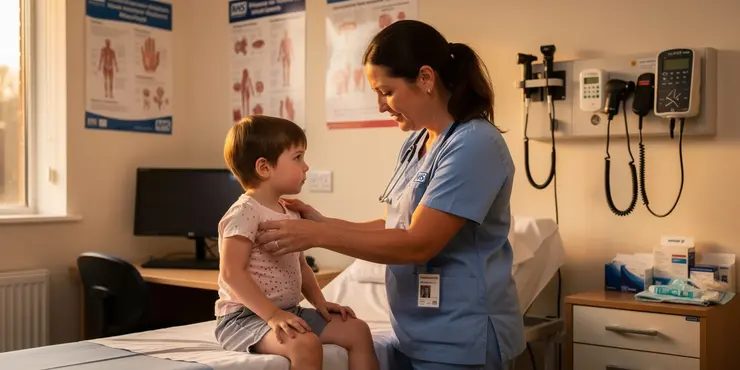
What are the symptoms of chickenpox?
Relevance: 95%
-
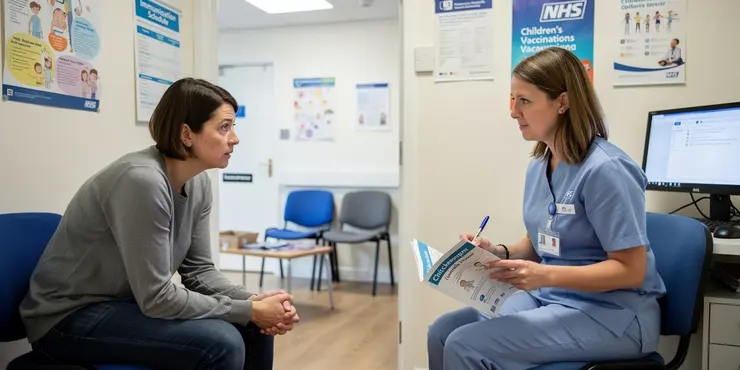
Can chickenpox be prevented?
Relevance: 94%
-
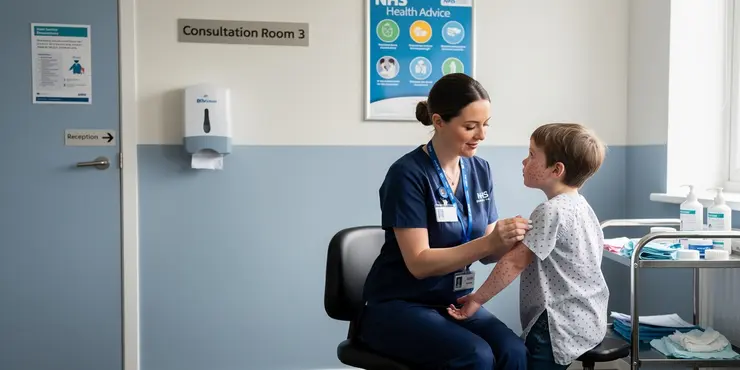
What is the treatment for chickenpox?
Relevance: 94%
-
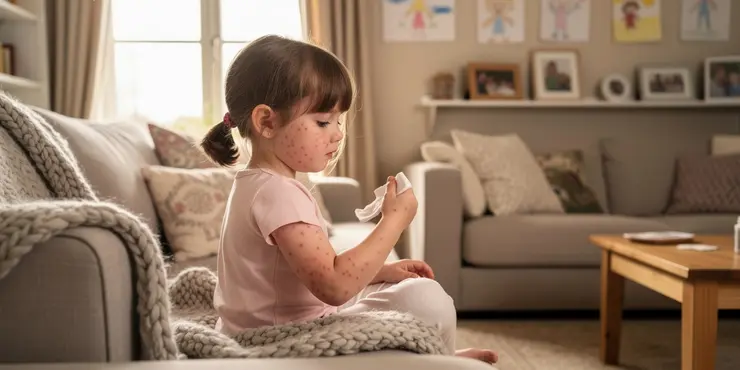
Are there home remedies for chickenpox?
Relevance: 92%
-
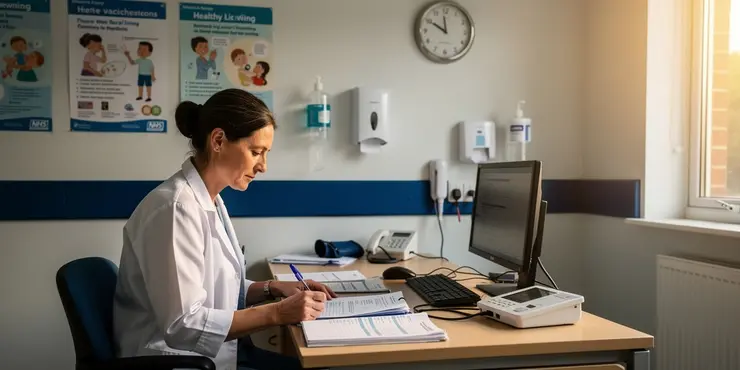
Can adults get chickenpox?
Relevance: 91%
-
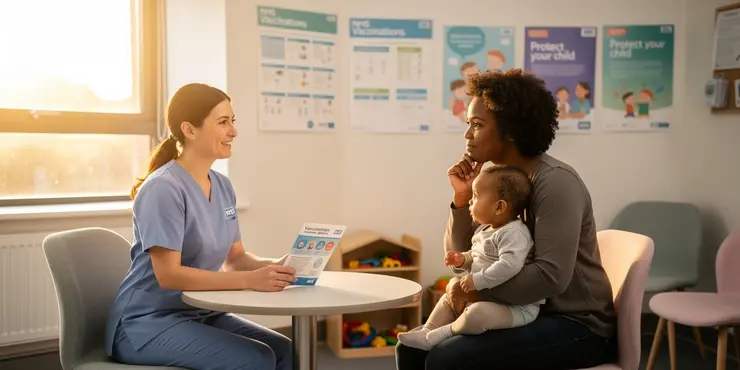
Should I get the chickenpox vaccine?
Relevance: 91%
-
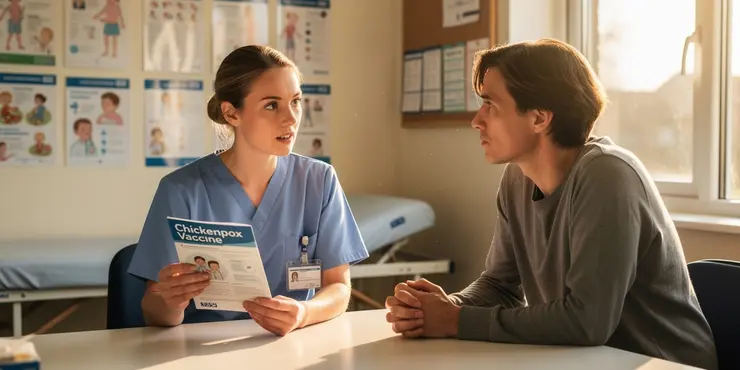
Who should get the chickenpox vaccine?
Relevance: 89%
-
Can pregnant women get chickenpox?
Relevance: 88%
-
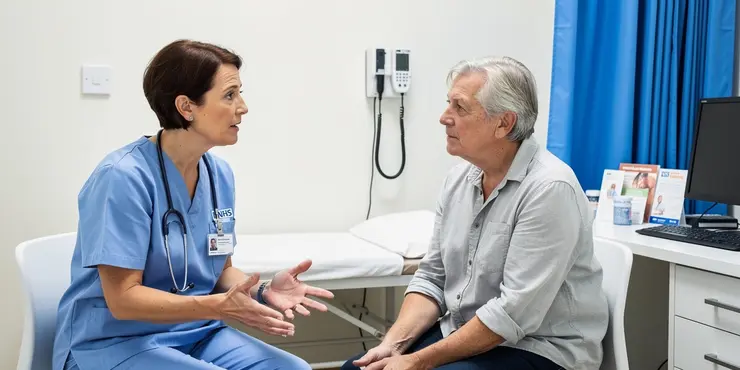
Can the shingles vaccine cause chickenpox?
Relevance: 86%
-
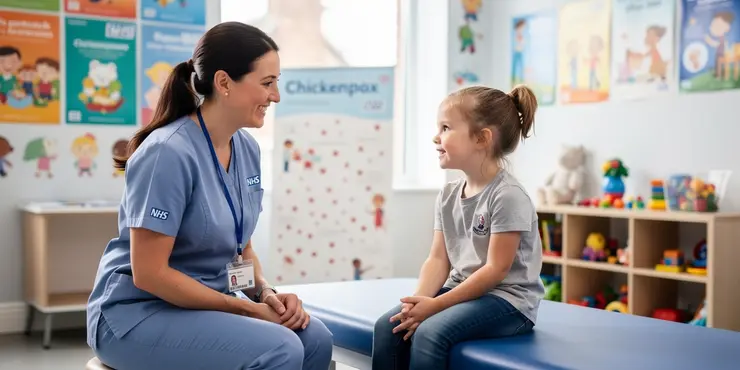
Common health questions about chickenpox | NHS
Relevance: 86%
-
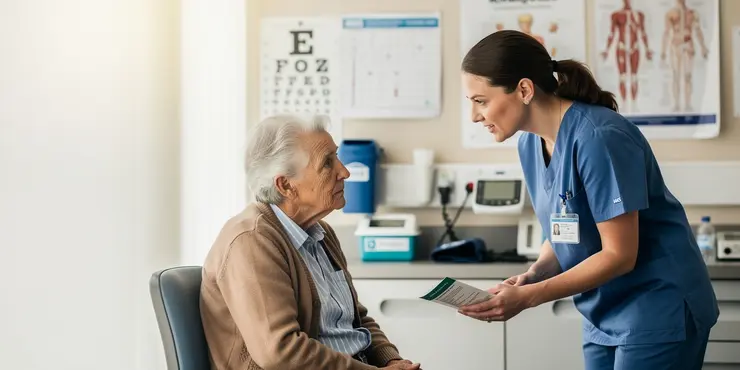
Can the shingles vaccine cause chickenpox?
Relevance: 86%
-
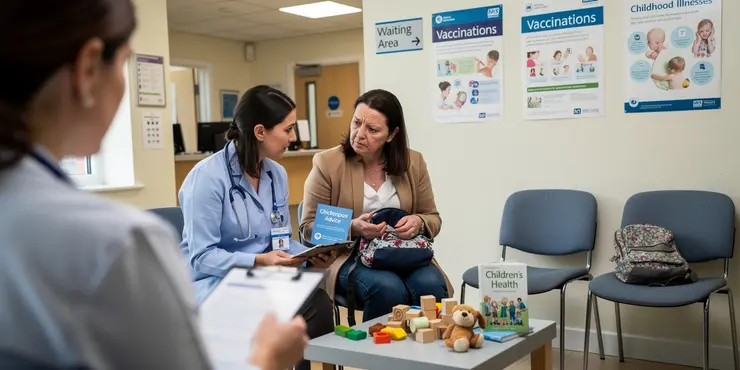
Is it safe to use aspirin to treat chickenpox symptoms?
Relevance: 85%
-
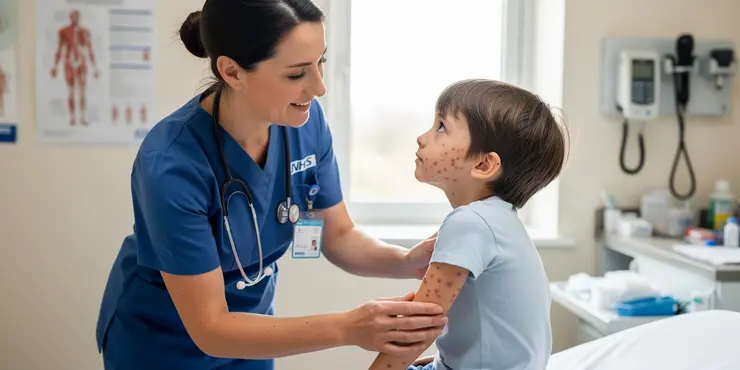
How long does chickenpox affect a child?
Relevance: 84%
-
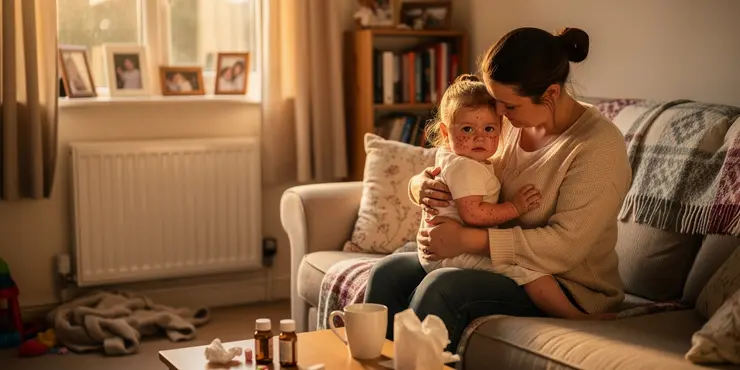
How to Keep a Child With Chickenpox Comfortable
Relevance: 84%
-
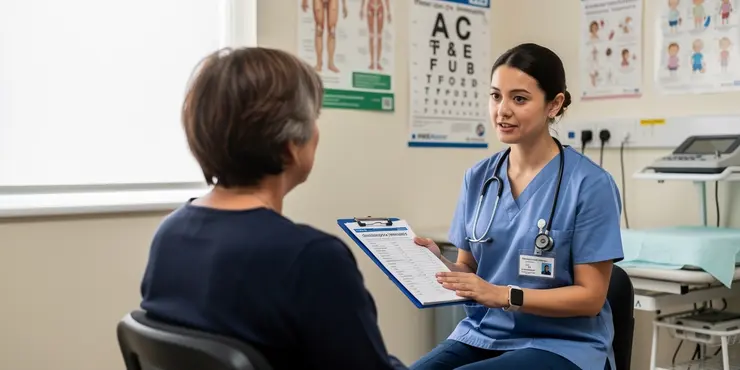
Can you get chickenpox more than once?
Relevance: 83%
-
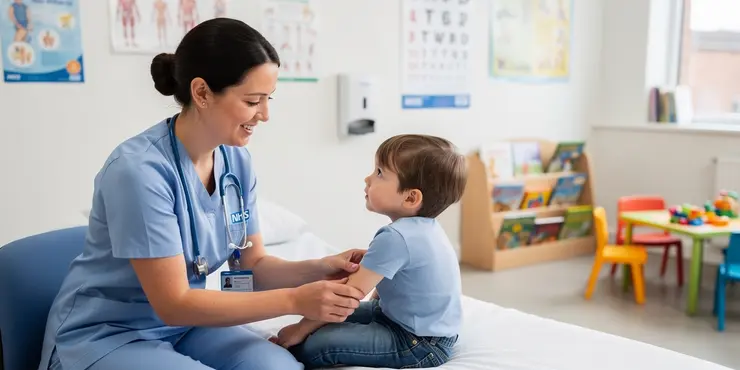
How long is the incubation period for chickenpox?
Relevance: 62%
-
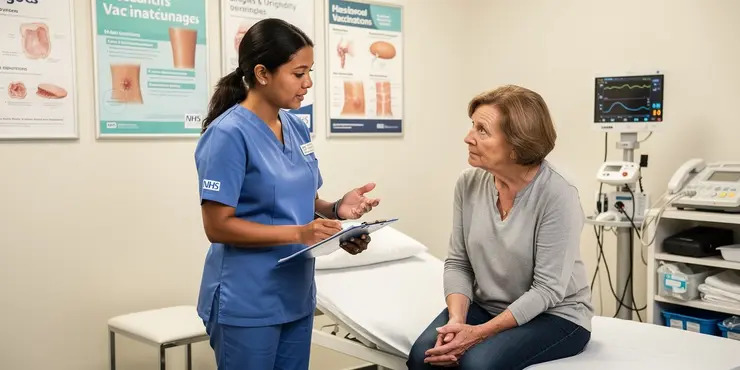
Is shingles contagious?
Relevance: 45%
-
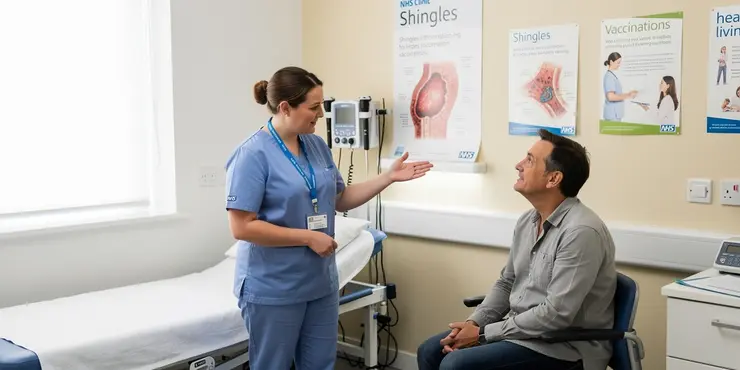
Is shingles contagious?
Relevance: 42%
-
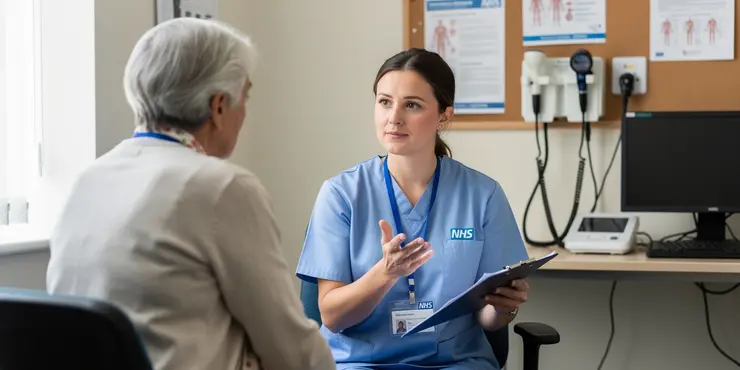
Who is at risk of developing shingles?
Relevance: 42%
-
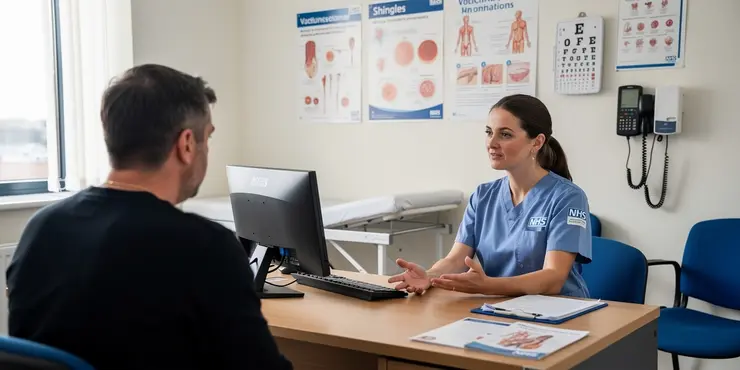
What causes shingles?
Relevance: 41%
-
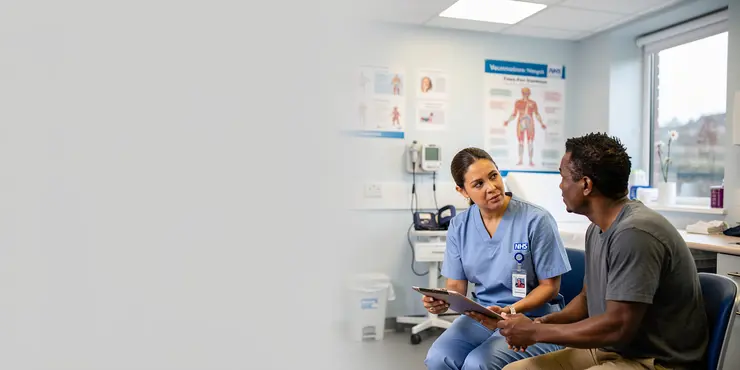
What causes shingles?
Relevance: 38%
-
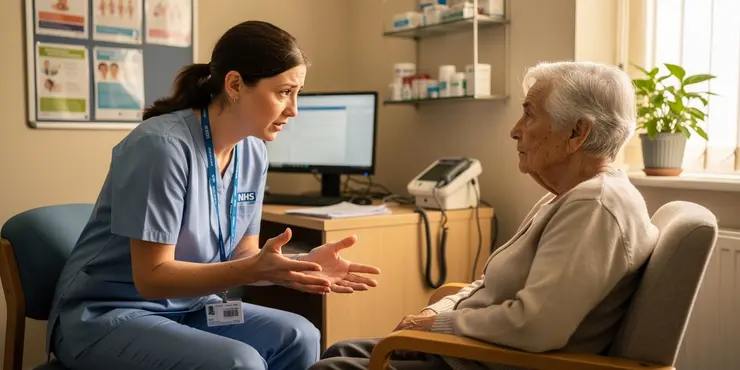
What is Shingles?
Relevance: 37%
-
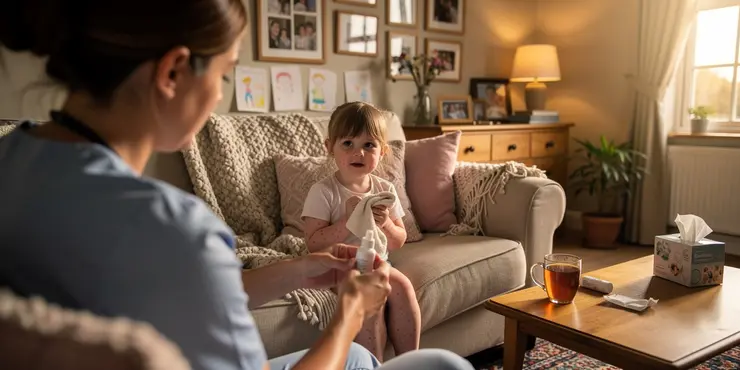
How to care for someone with chicken pox
Relevance: 37%
-
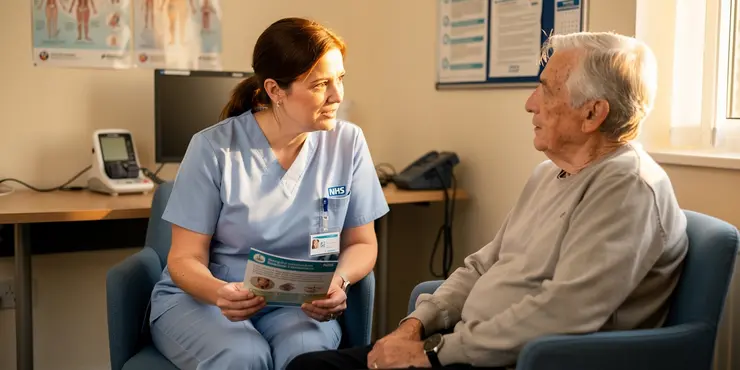
Can shingles be prevented?
Relevance: 37%
-
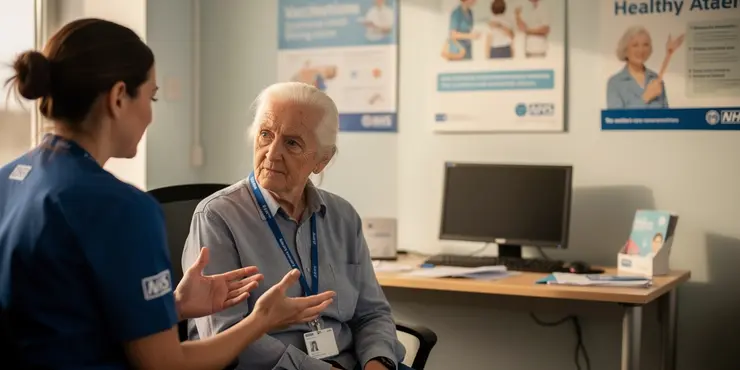
Can shingles be prevented?
Relevance: 35%
-
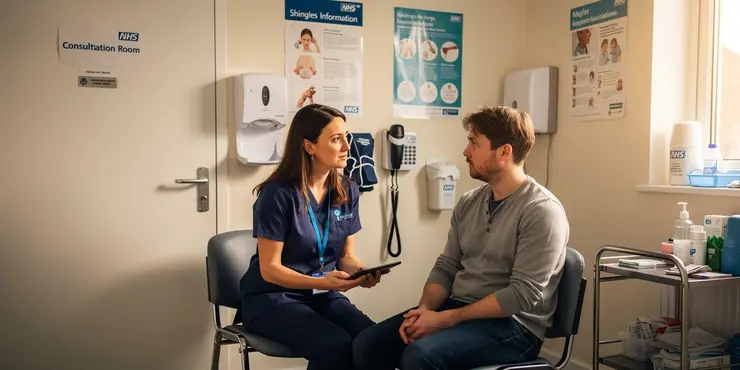
What is shingles?
Relevance: 32%
-
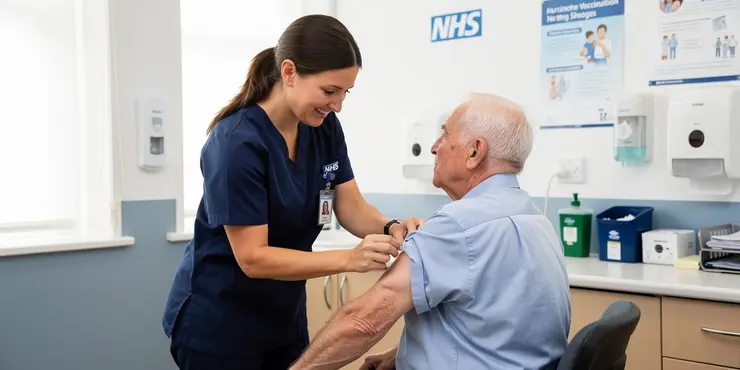
At what age should one get the shingles vaccine?
Relevance: 29%
-
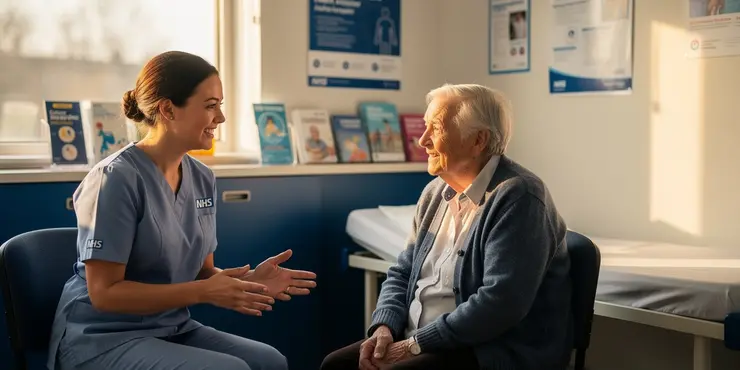
At what age should one get the shingles vaccine?
Relevance: 29%
-
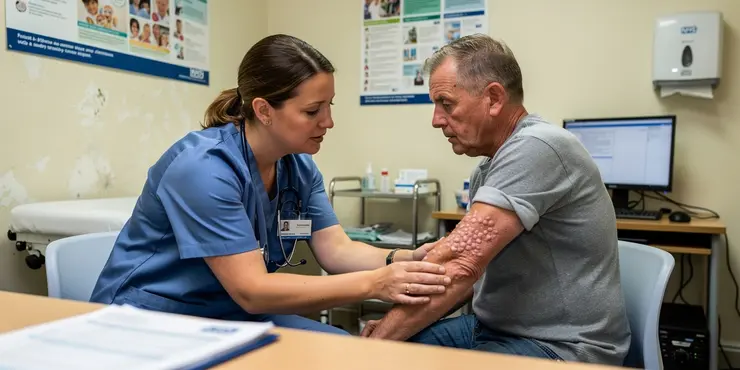
How is shingles diagnosed?
Relevance: 28%
-
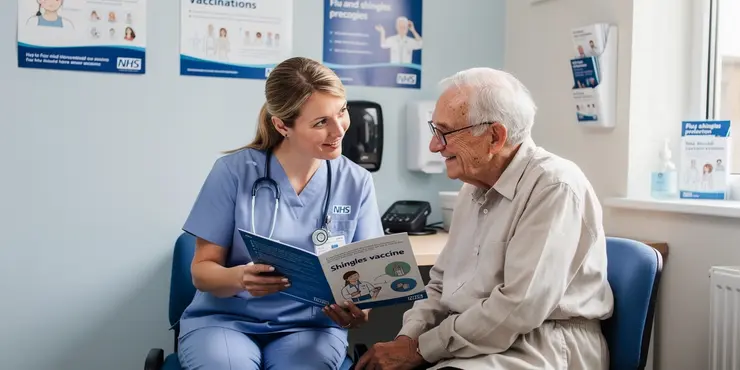
Is the shingles vaccine safe?
Relevance: 27%
-
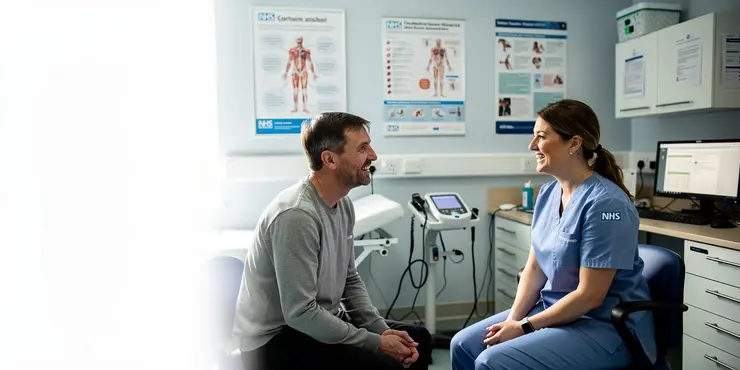
Can stress trigger shingles?
Relevance: 27%
-
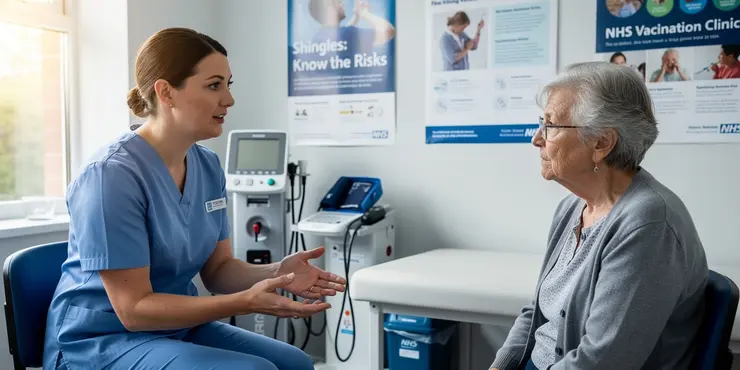
Are there any complications associated with shingles?
Relevance: 24%
-
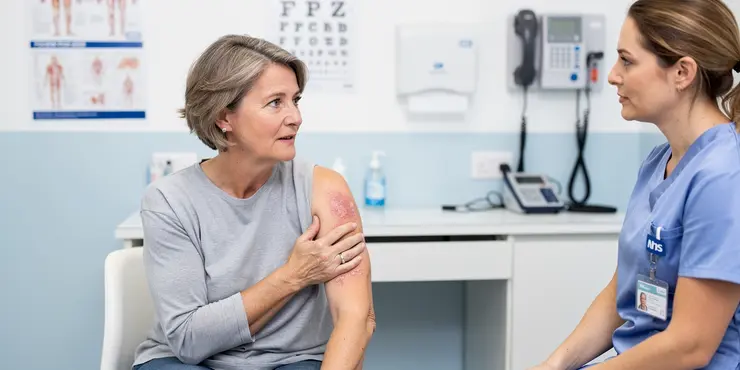
What is postherpetic neuralgia?
Relevance: 23%
-

Who is at risk of developing shingles?
Relevance: 22%
-
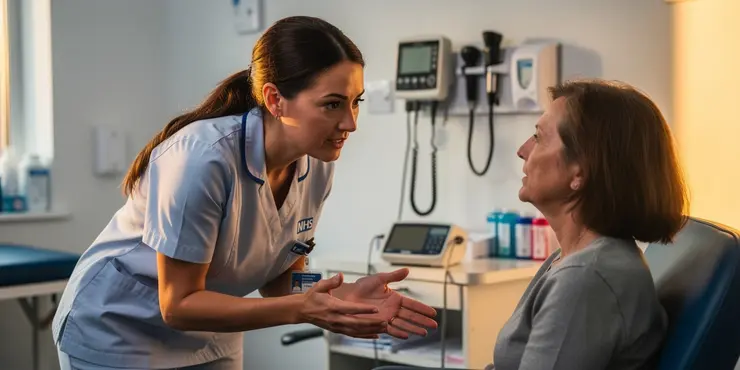
Can stress trigger shingles?
Relevance: 22%
-
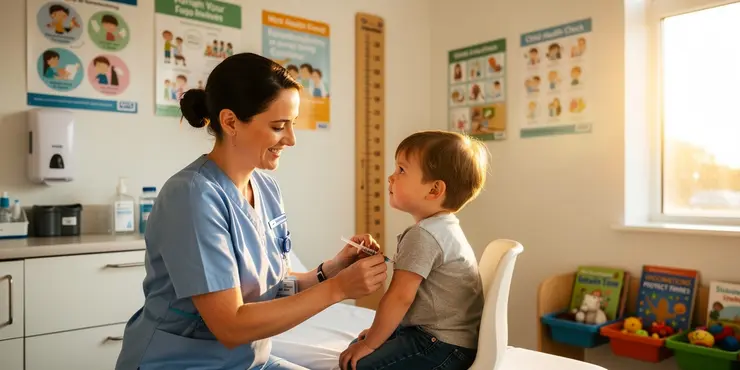
What is a live-attenuated vaccine?
Relevance: 20%
What is Chickenpox?
Chickenpox, known medically as varicella, is a highly contagious infection caused by the varicella-zoster virus. Common primarily among children, chickenpox is characterized by an itchy rash with small, red spots and blisters. In the UK, before the introduction of widespread vaccination, chickenpox was considered a common childhood illness, though it can affect individuals of any age.
Causes
The varicella-zoster virus (VZV) is responsible for chickenpox. This virus spreads easily from person to person through direct contact with the rash or through the air via respiratory droplets from coughing or sneezing. The virus is most contagious from a day or two before the rash appears until all blisters have crusted over. Once someone is infected, symptoms typically appear after 10 to 21 days.
Symptoms
The initial symptoms of chickenpox can include fever, fatigue, and a general feeling of unwellness. Following these symptoms, a rash develops, beginning as red or pink spots on the face, scalp, chest, and back before spreading to the rest of the body. These spots eventually form into fluid-filled blisters that crust over within a week.
Complications
While chickenpox is generally mild in healthy children, it can lead to complications, particularly in adults, pregnant women, newborns, and individuals with weakened immune systems. Complications can include bacterial infections of the skin, pneumonia, encephalitis, and, though rare, a severe secondary infection known as invasive group A streptococcal disease.
Prevention
Vaccination is the most effective way to prevent chickenpox. In the UK, the chickenpox vaccine is available but not routinely given to all children as part of the NHS vaccination programme. It is offered to non-immune healthcare workers and people in close contact with someone who has a weakened immune system. The vaccine is also recommended for women planning pregnancy to avoid complications during pregnancy.
Treatment
Mild cases of chickenpox are often treated with rest, hydration, and over-the-counter medications to relieve symptoms such as fever and itchiness. Calamine lotion or cool baths with baking soda, uncooked oatmeal, or colloidal oatmeal can help reduce itching. Antiviral medication may be prescribed for individuals at risk of severe disease.
Conclusion
Chickenpox is a common viral infection known for causing an itchy rash and flu-like symptoms. While it is usually a mild illness in children, it can lead to complications in specific populations. Vaccination provides effective prevention, though it is not part of the routine childhood vaccine schedule in the UK. Understanding the symptoms, transmission, and preventive measures can help manage the disease and mitigate risks associated with more severe cases.
What is Chickenpox?
Chickenpox is an illness that makes you feel itchy and gives you red spots and blisters. A virus called the varicella-zoster virus causes it. Chickenpox spreads easily from person to person. It mostly happens to children, but anyone can get it.
Causes
The virus that causes chickenpox is called the varicella-zoster virus. This virus can spread when you touch someone with chickenpox or when they cough or sneeze near you. You can catch it from when a person is sick, even before they have spots, until the spots become dry and crusty. After you catch the virus, it takes 10 to 21 days to start feeling sick.
Symptoms
At first, chickenpox can make you feel tired, sick, and give you a fever. Then, you get a rash with red or pink spots. This rash starts on your face, head, chest, and back. It spreads to other parts of your body. The spots turn into blisters filled with liquid. After about a week, these blisters dry up and get crusty.
Complications
Chickenpox is usually not serious in healthy kids. But it can be more serious for adults, pregnant women, newborn babies, or people with weak immune systems. Sometimes, it can cause skin infections, pneumonia (a lung infection), or other serious problems.
Prevention
The best way to stop chickenpox is with a vaccine. In the UK, not all children get this vaccine as part of their normal shots. But it is given to healthcare workers and people who will be near someone with a weak immune system. Women who want to get pregnant should also think about getting the vaccine to stay safe.
Treatment
If you have chickenpox, you should rest, drink lots of water, and take medicine to feel better and stop itching. Calamine lotion or cool baths with baking soda or oatmeal can help with itching. Some people may need special medicine from a doctor if they could get very sick.
Conclusion
Chickenpox is a common sickness that gives you an itchy rash and flu-like symptoms. It is mostly mild in children but can be more serious for others. Getting the vaccine can stop you from getting chickenpox, but not everyone gets it as part of their regular shots in the UK. Knowing how chickenpox spreads and what to do if you get it can help keep you and others safe.
Frequently Asked Questions
What is chickenpox?
Chickenpox, also known as varicella, is a contagious disease caused by the varicella-zoster virus.
What are the symptoms of chickenpox?
Symptoms of chickenpox include an itchy rash, red spots or blisters all over the body, fever, tiredness, and headache.
How is chickenpox spread?
Chickenpox spreads through direct contact with an infected person’s rash or through the air by respiratory droplets from coughing or sneezing.
Is chickenpox contagious?
Yes, chickenpox is highly contagious and can easily spread from person to person.
How long is the incubation period for chickenpox?
The incubation period for chickenpox is typically 10 to 21 days after exposure to the virus.
Can chickenpox be prevented?
Yes, chickenpox can be prevented with the varicella vaccine, which is safe and effective.
Who should get the chickenpox vaccine?
The chickenpox vaccine is recommended for children, adolescents, and adults who have never had chickenpox or the vaccine.
Can adults get chickenpox?
Yes, adults who have never had chickenpox or been vaccinated can get chickenpox, often with more severe symptoms.
What are the complications of chickenpox?
Complications can include bacterial infections of the skin, pneumonia, encephalitis, and, rarely, death.
How long does chickenpox last?
Chickenpox usually lasts about 5 to 10 days.
Can you get chickenpox more than once?
It is rare to get chickenpox more than once. Once you have had the disease, you usually develop immunity.
What is the treatment for chickenpox?
Treatment focuses on relieving symptoms with antihistamines for itching, pain relievers such as acetaminophen, and plenty of fluids. Antiviral medications may be prescribed in severe cases.
Are there home remedies for chickenpox?
Yes, oatmeal baths, baking soda paste, and calamine lotion can help alleviate itching and discomfort.
Is it safe to use aspirin to treat chickenpox symptoms?
No, aspirin should not be used in children with chickenpox due to the risk of Reye's syndrome.
Can pregnant women get chickenpox?
Yes, but chickenpox during pregnancy can pose risks to both the mother and the unborn child, including congenital varicella syndrome.
What should you do if exposed to chickenpox?
If you are not immune, contact a healthcare provider who may recommend a vaccine or a shot of immune globulin to reduce symptoms.
What does chickenpox rash look like?
The chickenpox rash begins as small red spots that develop into fluid-filled blisters, eventually crusting over.
What is shingles, and is it related to chickenpox?
Shingles, or herpes zoster, is caused by the reactivation of the varicella-zoster virus, which remains inactive in the body after chickenpox.
What groups are at higher risk for chickenpox complications?
Infants, adults, pregnant women, and individuals with weakened immune systems are at higher risk.
How effective is the chickenpox vaccine?
The vaccine is about 85-90% effective at preventing the disease entirely and often reduces severity in cases where it does occur.
What is chickenpox?
Chickenpox is a sickness that gives you itchy spots on your skin. It can also make you feel tired and have a fever. It is caused by a virus.
Most children get chickenpox, but it is not very serious. You usually get better in a few days.
If you scratch the spots, they might leave scars. Try not to scratch!
Here are some things that can help:
- Use a cooling lotion to stop the itch.
- Take a warm bath to feel better.
- Ask a grown-up if you can take medicine to help the fever.
Chickenpox is a sickness that can spread from person to person. It is also called varicella. A germ called the varicella-zoster virus makes people sick with chickenpox.
What are the signs of chickenpox?
Chickenpox can make you feel sick. Here are some signs to look for:
- You might get itchy red spots on your skin.
- You could feel very tired.
- You may have a fever, which means you feel very hot.
- You can get a headache.
- You might not want to eat much.
If you or someone else has these signs, it's a good idea to tell an adult and see a doctor.
If you have chickenpox, you might get these things:
- A rash that itches a lot.
- Red spots or blisters on your skin.
- A fever, which means you feel hot.
- Feeling really tired.
- A headache, which is when your head hurts.
If you have trouble with these words, it's okay to ask someone for help. Using a dictionary or asking an adult can make it easier to understand.
How does chickenpox spread?
Chickenpox is a virus that spreads easily.
It can spread when someone with chickenpox sneezes or coughs. Tiny drops from their nose or mouth can get into the air.
You can also catch chickenpox by touching the spots or blisters on the skin of a person who has it.
If you have been around someone with chickenpox, wash your hands often. This helps to stop the virus from spreading.
Chickenpox spreads when you touch someone who has the spots. It can also spread through the air if they cough or sneeze near you.
Can you catch chickenpox from someone else?
Yes, you can catch chickenpox. This means it is contagious. You can get it if you are near someone who has chickenpox. The germs can spread through the air when they sneeze or cough.
It is important to stay away from people with chickenpox if you do not want to catch it.
Here are some tips to help keep safe:
- Stay away from anyone with chickenpox.
- Wash your hands often with soap and water.
- Ask an adult to clean toys you share with others.
If you feel worried, talk to a grown-up you trust. They can help you stay healthy.
Yes, chickenpox spreads very easily from one person to another.
How long does it take to get sick from chickenpox?
After you catch the chickenpox virus, it usually takes 10 to 21 days to show symptoms.
How can you stop chickenpox?
There is a special medicine called a vaccine that can help stop chickenpox.
The vaccine is like a shield. It helps protect your body so you don't get sick with chickenpox.
If you get the chickenpox vaccine, you are less likely to get chickenpox.
Ask a doctor or nurse about getting the chickenpox vaccine.
Pictures and videos can help you understand more about chickenpox.
Yes, you can stop chickenpox with a special shot called the varicella vaccine. The shot is safe and works well.
Who needs the chickenpox shot?
The chickenpox shot is good for kids, teens, and grown-ups who never had chickenpox or the shot before.
Can grown-ups get chickenpox?
Yes, grown-ups can get chickenpox. It is not just for kids. If a grown-up did not have chickenpox as a kid, they can still catch it.
Chickenpox is a sickness that makes you itchy and can give you spots on your skin. It might make you feel tired and sick too.
It is important to see a doctor if you think you have chickenpox. The doctor can help you feel better.
Using a calendar to remember important days, like when you see the doctor, can help. Also, asking a friend or family member to go with you can be helpful.
Yes, grown-ups who never had chickenpox or never got the chickenpox shot can catch chickenpox. They might feel sicker than kids do.
What can happen if chickenpox gets worse?
Sometimes, when you are sick, other problems can happen. You might get an infection on your skin, have trouble with your lungs called pneumonia, get very sick in your brain called encephalitis, or even, but not often, get so sick you could die.
How long does chickenpox last?
Chickenpox is a skin illness. It gives you itchy spots. These spots can look like blisters.
The spots usually show up after a few days. Chickenpox usually lasts about one to two weeks.
Here are some tips to help:
- Try not to scratch the spots.
- Use a cool cloth to feel better.
- Ask an adult for medicine if you feel bad.
Chickenpox lasts about 5 to 10 days.
Can you have chickenpox again?
Most people get chickenpox only one time. Your body fights the virus and remembers it. This keeps you from getting it again.
But, some people can get chickenpox a second time. It is rare, but it can happen.
If you want to remember things easily, try writing notes or using pictures. If words are hard, a friend or family member can read to you. Talking about what you learn can also help.
Most people get chickenpox only one time. After you have had it, your body learns how to fight it, and you won't get it again.
If you find reading hard, you can use tools like audiobooks to listen instead.
How do you treat chickenpox?
If you have chickenpox, here are some things you can do to feel better:
- Rest a lot. Your body needs energy to get better.
- Drink lots of water to stay hydrated.
- Use lotion like calamine to stop the itching.
- Take medicine if you have a fever. Ask an adult or a doctor first.
- Wear loose, soft clothes so your skin feels more comfortable.
If you want more help, ask a doctor or nurse.
The treatment helps you feel better. You can take medicine to stop itching and to help with pain. Make sure to drink lots of water. If you are very sick, the doctor might give you special medicine to fight the virus.
Can you treat chickenpox at home?
Chickenpox is a sickness that gives you itchy spots on your skin.
Here are some tips to feel better at home:
- Bathe in cool water with baking soda.
- Use lotion like calamine to stop the itching.
- Wear loose, soft clothes.
- Rest and drink lots of water.
If you are not sure, talk to a doctor or nurse.
Yes, taking a bath with oatmeal, using a baking soda paste, and putting on calamine lotion can help stop itching and make you feel better.
Can you use aspirin safely if you have chickenpox?
No, do not give aspirin to children with chickenpox. It can make them very sick with something called Reye's syndrome.
Can women who are having a baby catch chickenpox?
Yes, women who are having a baby can catch chickenpox. If you have not had chickenpox before, try to stay away from people who have it.
If you are worried, talk to your doctor. They can help you. You can also use pictures and videos to learn more about chickenpox.
Yes, getting chickenpox when pregnant can be dangerous for both the mother and the baby. It can cause problems like a sickness called congenital varicella syndrome.
To understand better, you can use tools that read text out loud or highlight words to help you follow along.
What to do if you are near someone with chickenpox?
If you are close to someone with chickenpox:
- Stay away from them if you can.
- Wash your hands often with soap and water.
- If you feel sick, tell an adult you trust.
- Visit a doctor if you have problems.
Chickenpox is a sickness with itchy spots. Take care to not spread it.
Use picture charts or videos to understand better.
If you have not had the medicine to stop you from getting sick, talk to a doctor or nurse. They might suggest you get a vaccine or a special shot to help you feel better.
What does a chickenpox rash look like?
When you have chickenpox, you get red spots on your skin. They are called a rash.
Here is what to look for:
- Red spots that turn into blisters.
- The spots can be very itchy.
- Blisters may break, then scab over.
You can use pictures to help you understand what a chickenpox rash looks like.
Remember: If you have questions, ask a doctor or nurse for help.
Chickenpox gives you a rash. It starts with small red spots. Then, the spots turn into blisters filled with fluid. Later, these blisters dry up and form a crust.
What is shingles, and is it related to chickenpox?
Shingles is a rash that can be very painful. It is caused by a virus. This virus is the same one that causes chickenpox.
Here is how it works:
- If you had chickenpox before, the virus can stay in your body.
- Later, the virus can make shingles when you are older.
Here are some tips to help you understand:
- Talk to a doctor if you have questions.
- Look at pictures of chickenpox and shingles to see the difference.
- Use a dictionary if you find hard words.
Shingles is a sickness. It is also called herpes zoster. It happens when a virus wakes up in your body after you had chickenpox.
Who can get more sick from chickenpox?
Babies, grown-ups, moms-to-be, and people who get sick easily need to be extra careful.
Does the chickenpox shot work well?
The vaccine works really well. It stops people from getting sick about 85 to 90 times out of 100. If someone does get sick, the vaccine helps them not feel as bad.
If you find reading hard, try to read with a friend or use an app that reads out loud. You can also use a highlighter to mark the important parts.
Useful Links
This website offers general information and is not a substitute for professional advice.
Always seek guidance from qualified professionals.
If you have any medical concerns or need urgent help, contact a healthcare professional or emergency services immediately.
Some of this content was generated with AI assistance. We’ve done our best to keep it accurate, helpful, and human-friendly.
- Ergsy carfully checks the information in the videos we provide here.
- Videos shown by Youtube after a video has completed, have NOT been reviewed by ERGSY.
- To view, click the arrow in centre of video.
- Most of the videos you find here will have subtitles and/or closed captions available.
- You may need to turn these on, and choose your preferred language.
- Go to the video you'd like to watch.
- If closed captions (CC) are available, settings will be visible on the bottom right of the video player.
- To turn on Captions, click settings .
- To turn off Captions, click settings again.
More Items From Ergsy search
-

Is chickenpox contagious?
Relevance: 100%
-

What is Chickenpox?
Relevance: 99%
-

What are the complications of chickenpox?
Relevance: 95%
-

How is chickenpox spread?
Relevance: 95%
-

What are the symptoms of chickenpox?
Relevance: 95%
-

Can chickenpox be prevented?
Relevance: 94%
-

What is the treatment for chickenpox?
Relevance: 94%
-

Are there home remedies for chickenpox?
Relevance: 92%
-

Can adults get chickenpox?
Relevance: 91%
-

Should I get the chickenpox vaccine?
Relevance: 91%
-

Who should get the chickenpox vaccine?
Relevance: 89%
-
Can pregnant women get chickenpox?
Relevance: 88%
-

Can the shingles vaccine cause chickenpox?
Relevance: 86%
-

Common health questions about chickenpox | NHS
Relevance: 86%
-

Can the shingles vaccine cause chickenpox?
Relevance: 86%
-

Is it safe to use aspirin to treat chickenpox symptoms?
Relevance: 85%
-

How long does chickenpox affect a child?
Relevance: 84%
-

How to Keep a Child With Chickenpox Comfortable
Relevance: 84%
-

Can you get chickenpox more than once?
Relevance: 83%
-

How long is the incubation period for chickenpox?
Relevance: 62%
-

Is shingles contagious?
Relevance: 45%
-

Is shingles contagious?
Relevance: 42%
-

Who is at risk of developing shingles?
Relevance: 42%
-

What causes shingles?
Relevance: 41%
-

What causes shingles?
Relevance: 38%
-

What is Shingles?
Relevance: 37%
-

How to care for someone with chicken pox
Relevance: 37%
-

Can shingles be prevented?
Relevance: 37%
-

Can shingles be prevented?
Relevance: 35%
-

What is shingles?
Relevance: 32%
-

At what age should one get the shingles vaccine?
Relevance: 29%
-

At what age should one get the shingles vaccine?
Relevance: 29%
-

How is shingles diagnosed?
Relevance: 28%
-

Is the shingles vaccine safe?
Relevance: 27%
-

Can stress trigger shingles?
Relevance: 27%
-

Are there any complications associated with shingles?
Relevance: 24%
-

What is postherpetic neuralgia?
Relevance: 23%
-

Who is at risk of developing shingles?
Relevance: 22%
-

Can stress trigger shingles?
Relevance: 22%
-

What is a live-attenuated vaccine?
Relevance: 20%


